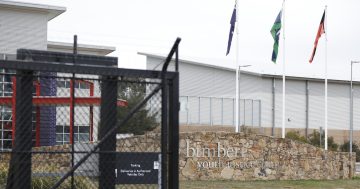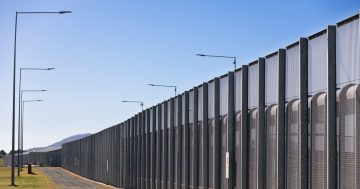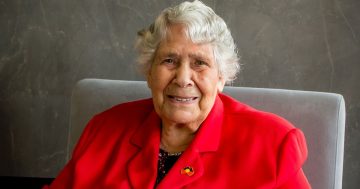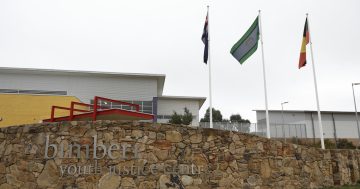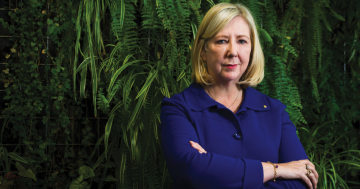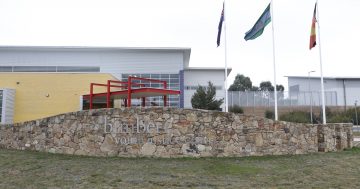
There is a much higher likelihood that children who commit offences have themselves been exposed to crime, violence and homelessness. Photo: File.
The confronting revelations of police brutality in the United States this year have also brought Australia’s record of black deaths in custody into focus. While a terrible reality for many First Nations people, many non-Indigenous Australians have been shockingly ignorant of the high number of Aboriginal and Torres Strait Islander people who have died while in custody.
While we have been able to comfort ourselves that a Royal Commission into Aboriginal deaths in custody that handed down its report in 1991, many of us somehow missed that death rates have escalated since the time of the Commission, with over 400 Aboriginal and Torres Strait people dying while in custody, with no one prosecuted for these deaths.
Now we can’t say we don’t know. We can no longer ignore the evidence that we have a major issue with institutional racism and discrimination which leads to unacceptable and disproportionate rates of interaction with our police forces, high levels of arrest, and a significant over-representation of First Nations people in our criminal justice system.
We must recognise that this has led to the deaths of far too many First Nations people and work out what we can do to reduce the level of engagement with the criminal justice system. In addition to listening, learning and creating space for First Nations people’s voices, we must also use our voice to raise issues and demand action.
If we want to stop the high rates of First Nations people in detention, a good start would be to stop locking up children.
Currently, here in the ACT and across Australia, children as young as 10 can be picked up by police, hauled before a court and locked up in youth detention centres. This is despite strong evidence that children’s brains at this age have not yet developed the capacity to understand criminal responsibility. According to the Australian Medical Association, locking up children causes harm.
They point out that children who are forced into contact with the criminal justice system are less likely to complete their education or find employment, and are more likely to die an early death.
Our approach here in Canberra and across Australia is at odds with the United Nations, which is calling for the age of criminal responsibility to be raised to age 14 or higher, and recommending that children under the age of 16 should not be deprived of liberty.
We know that offending by children and young people is linked to poverty and disadvantage. There is a much higher likelihood that children who commit offences have themselves been exposed to crime, violence and homelessness. We know these children and young people are more likely to have experienced child abuse and neglect. We also know that early contact with criminal justice system can lead to chronic, long term offending due to exposure to harmful environments and isolation from family and social supports.
Proportionally, Aboriginal and Torres Strait Islander children are detained in youth detention centres at far higher rates than their non-Indigenous counterparts. The Australian Institute of Health and Welfare reports that Aboriginal and Torres Strait Islander young people aged 10 to 17 were 21 times as likely as young non-Indigenous Australians to be in detention.
There has been discussion for a number of years on the age of criminal responsibility, with the issue most recently in the spotlight in February this year with the establishment of a COAG working group to examine the issue. While this group is still scheduled to meet and report, the future of these processes is unclear with the recent announcement of the Prime Minister to abolish COAG and replace it with the National Cabinet.
Given this uncertainty, and the urgent need to move to dismantle structures that we know are discriminatory and can trigger a path to chronic offending, surely it’s time for us to show leadership in the ACT. Let’s immediately move towards meeting our human rights obligations towards children and increase the age of criminal responsibility to 14. Let’s stop spending money sending our children to youth detention and instead invest it in addressing the issues that have led to their offending.
Changing the age of criminal responsibility will not solve all the issues that lead to poorer outcomes for First Nations people in this community and high incarceration rates. We also need to focus on early intervention and particularly work to reduce the high levels of contact that Aboriginal and Torres Strait Islanders have with the Care and Protection System and reducing the number of Aboriginal and Torres Strait Islander children being removed from their families.
We need to focus on justice reinvestment to create a better normal for our whole community. However, it’s a good start that recognises the importance of supporting all young people to reach their potential.
I think its time to increase the age of criminal responsibility in line with evidence and human rights obligations. What do you think?
Rebecca Vassarotti is an ACT Green’s candidate for Kurrajong in the upcoming ACT Territory Election.













